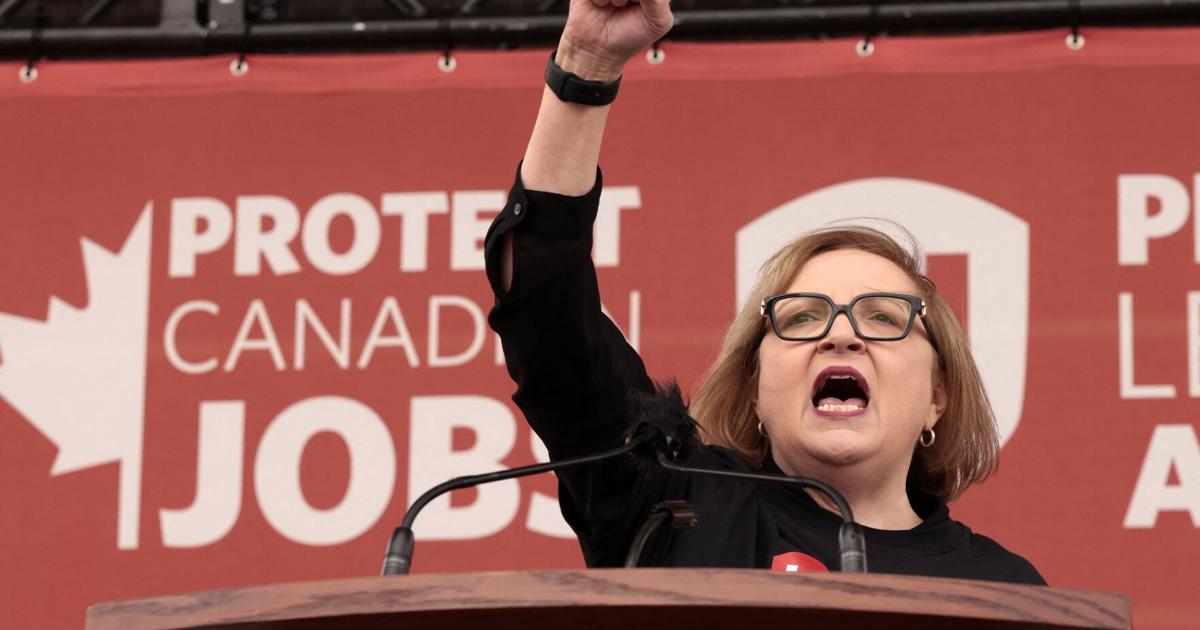The federal government has an even more powerful trade-war weapon than counter-tariffs at its disposal and should begin using it immediately, says Canada’s biggest private sector union.
In a letter to Prime Minister Mark Carney being sent Tuesday and provided to the Star, Unifor national president Lana Payne urges Carney and his government to use the Foreign Extraterritorial Measures Act to penalize companies that shift production out of Canada to avoid tariffs imposed by U.S. president Donald Trump.
The act gives the attorney general — in conjunction with the foreign affairs minister — the power to issue orders barring companies and individuals from complying with foreign laws and policies which have the potential to “adversely affect Canadian interests in relation to international trade or commerce.”
The act allows a maximum penalty of $1.5 million for companies, and $150,000 plus five years in prison for individuals.
While counter-tariffs have been a necessary and effective measure to fight the trade war, said Payne, the urgency is growing as companies shift production and shed jobs.
“As tariffs persist, and threats of layoff and plant closures mount, further aggressive and defensive action must be taken to solidify Canada’s industrial economy,” Payne wrote in her letter to Carney.
“I urge your government to take immediate and decisive action using the Foreign Extraterritorial Measures Act (FEMA), to prevent corporations operating in Canada, from offshoring jobs in response to foreign trade policies — particularly those originating from the United States.”
Unifor is also calling for stronger penalties, including asset seizures for companies that violate orders issued under FEMA, as well as compliance with FEMA orders, to be a condition for any company seeking relief from Canada’s own retaliatory tariffs.
“We need to stop rewarding companies that gut our communities and undermine our economy,” said Payne. “This is about protecting good Canadian jobs and defending our sovereignty.”
In a legal brief prepared for Unifor, international trade lawyer Craig Logie said FEMA could be even more effective with a few legislative tweaks, including explicitly making U.S. instructions to “off-shore” jobs from Canada an unenforceable measure. Logie also suggested raising the maximum fines, as well as giving courts the ability to order the seizure and sale of property of companies or individuals who disobey an order under FEMA.
Logie noted that the Act can also apply to everything from official court rulings and government legislation, to “intimations of policy and other communications issued by…the foreign state or foreign tribunal.”
“This is very broad language,” Logie wrote in his analysis.
The 1985 Act has been invoked twice before, both times involving American trade and economic policies.
In 2014, the Conservative government of Stephen Harper used it to fight Buy American provisions in an Alaskan-operated ferry terminal being refurbished in Prince Rupert, B.C.
In 1992, Brian Mulroney’s Progressive Conservative government invoked the Act to make it illegal for Canadian companies and individuals to comply with the U.S. trade embargo on Cuba.
Still, using it to punish companies for trying to avoid tariffs would be novel ground, said John Boscariol, head of the international trade law group at McCarthy Tetrault.
“FEMA has never been used in the way they’re proposing,” said Boscariol. “They might have a hard time convincing the government to use it like this.”



